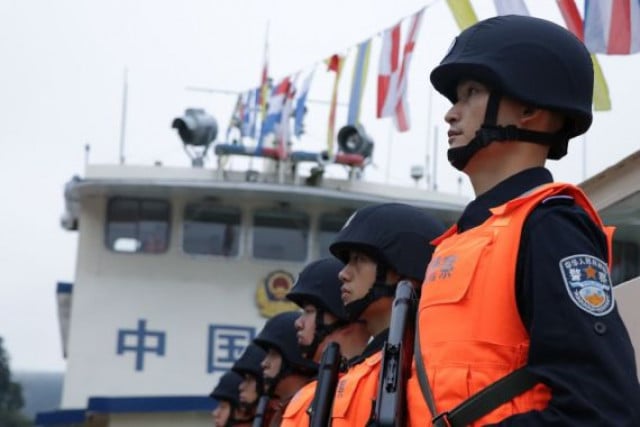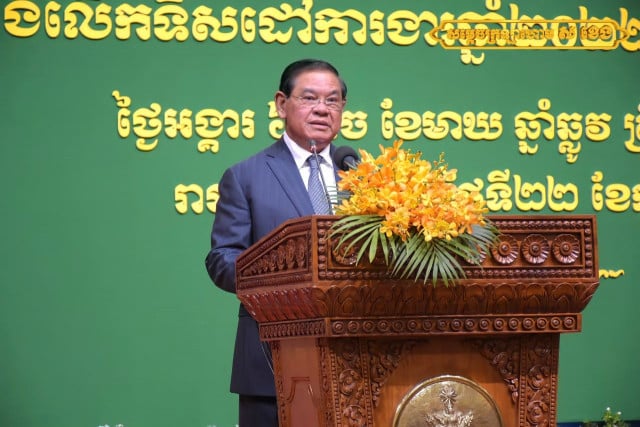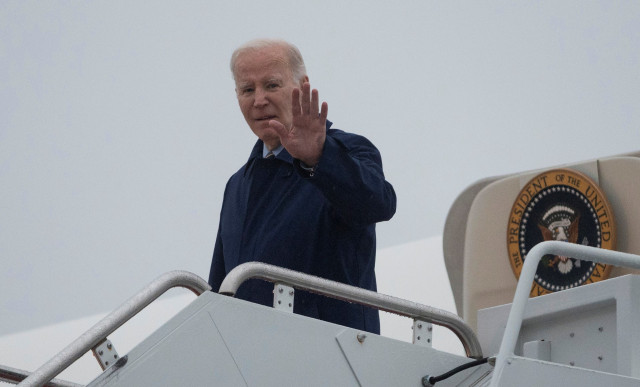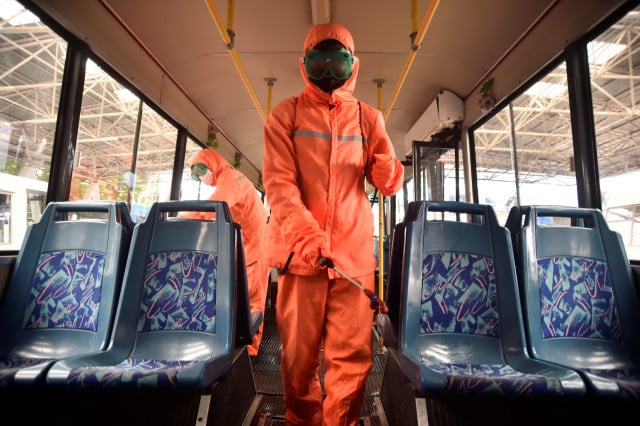China Focus: Joint patrols on Mekong revitalize "golden waterway"

- Xinhua
- November 24, 2019 6:24 AM
KUNMING, Nov. 24 (Xinhua) -- Four Chinese patrol ships returned to Guanlei Port in southwest China's Yunnan Province on Friday after completing the 88th Mekong River joint patrol led by China, Laos, Myanmar and Thailand.
The mission, which started Tuesday and involved eight vessels and 228 law enforcement personnel from the four countries, marks the eighth anniversary of the monthly joint patrol, which was launched in 2011 to tackle safety concerns along the Mekong.
The Mekong River, known as the Lancang River at the Chinese stretch, meanders for 4,908 km through China, Laos, Myanmar, Thailand, Cambodia and Vietnam. Dubbed a "golden waterway" for international shipping, it is, nevertheless, a border area notorious for rampant criminal activities.
Complex river conditions also pose a serious danger to navigation, with rapids and rocks constantly threatening to strand or capsize ships on the river.
"Some sections of the Mekong are very narrow and turbulent, making it difficult to navigate. All I can rely on is my years of experience," said Tan Jianhua, captain of one patrol ship, who has sailed on the river for more than 20 years. "I dare say even the most experienced helmsman on the Yangtze River, China's longest river would never make it on the Mekong."
Formerly the captain of a cargo ship, Tan took up his role in the patrol ship eight years ago, in response to a call for experienced Mekong helmsmen after a gang hijacked two cargo ships and killed 13 Chinese sailors in the waters near the Golden Triangle on Oct. 5, 2011. Tan's two friends were among the victims.
"I met their ship on the Mekong two days before the tragedy and talked to them over the marine radio. I never expected that it would be the last time that we talked," Tan recalled.
After the attack, China, Laos, Myanmar and Thailand issued a joint statement on law enforcement and security cooperation along the Mekong. More than 280 Chinese officers including Tan were selected to form a patrol team.
Two months later, the first joint patrol by the four countries was launched in an event marking the resumption of transnational shipping on the Mekong, which had been halted after the October attack.
The joint patrols since 2011 have greatly reduced drug trafficking cases and other cross-border crimes and brought safety and stability to the region, Manosack Phanthavong, a Lao law enforcement official told Xinhua during the 88th joint patrol.
Transnational shipping on the Mekong has returned to its former glory thanks to the monthly patrols. According to customs authorities of Xishuangbanna Dai Autonomous Prefecture, where Guanlei Port is located, more than 1,800 cargo ships carrying cargo valued at 112 million U.S. dollars entered or left the ports in the prefecture in the first half of 2018.
Tao Youming, owner of a Chinese cargo ship, said many cargo ship owners were still afraid of sailing on the Mekong in the early stages of the joint patrols and were planning to sell their ships. "Now they are buying bigger ships to transport more cargo," he said.
According to the Yunnan provincial public security department, more than 13,700 enforcement personnel and 724 vessels participated in the past 87 joint patrol missions, which inspected over 1,000 ships and 61,000 tonnes of cargo and salvaged 124 merchant ships in distress.
Kang Shizhu, head of the Mekong River joint patrol command, said the four countries have so far achieved round-the-clock control of the section of the Mekong between Guanlei Port and Thailand's Chiang Saen Port and are deepening cooperation in the crackdown on non-traditional crimes such as cybercrime and terrorism.
Security cooperation between the countries has also been expanded to personnel training, information exchange as well as search and rescue.
Tan said he still vividly recalls his experience during the first Mekong River joint patrol. "I saw residents on the river banks waving to us and showing banners that said 'brothers' in Chinese. I was proud that we could make a difference," he said. "I hope to teach more apprentices who can patrol the Mekong and make the river a safer place."















